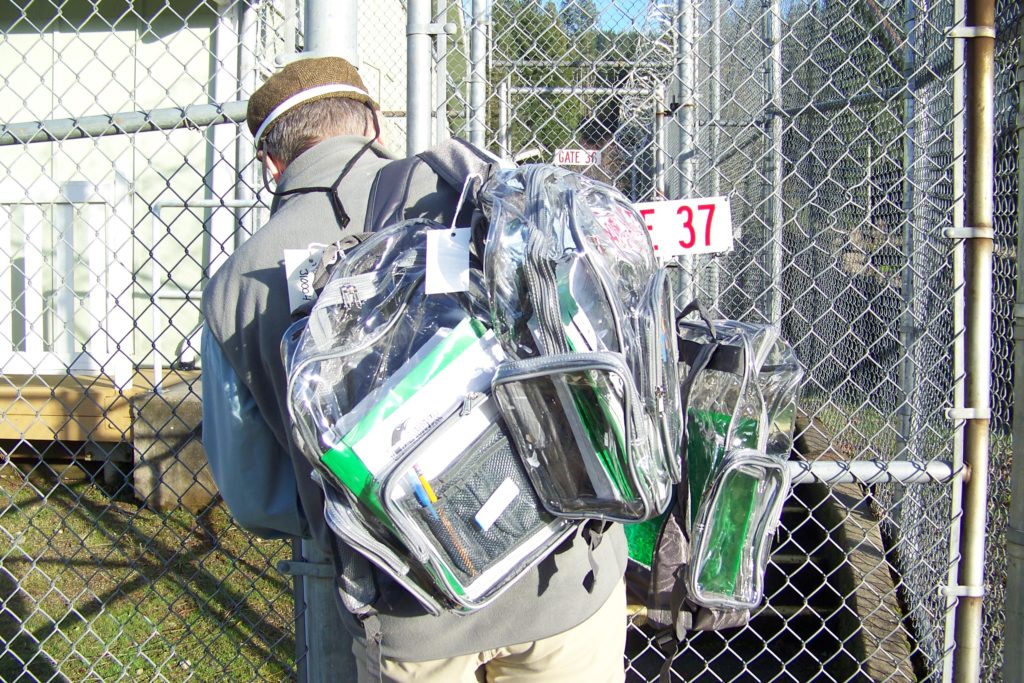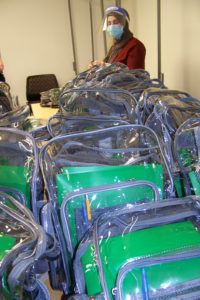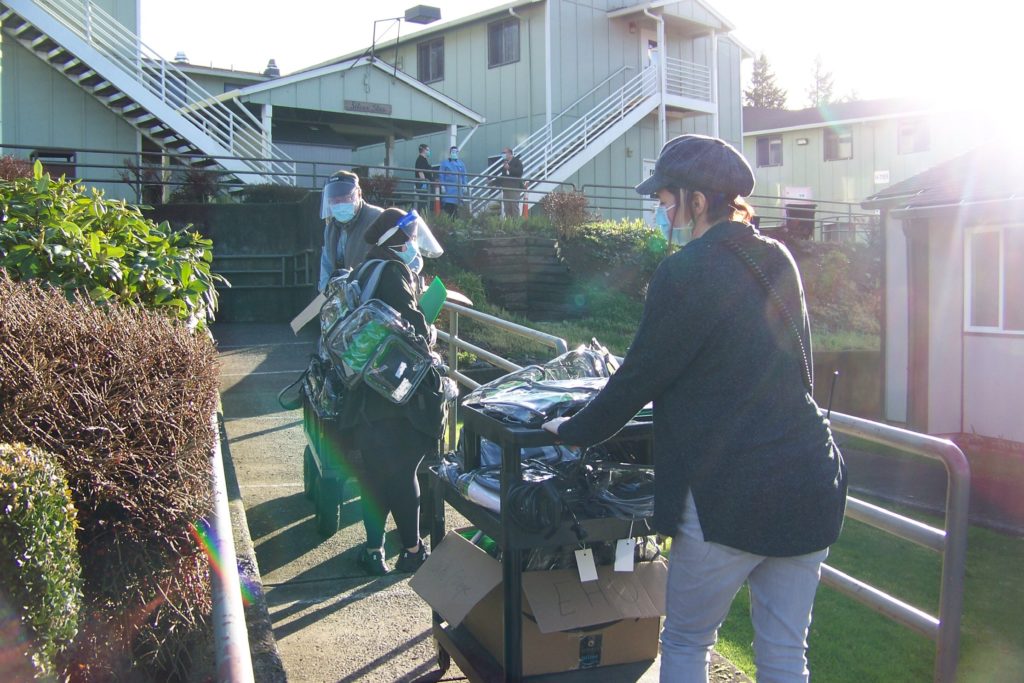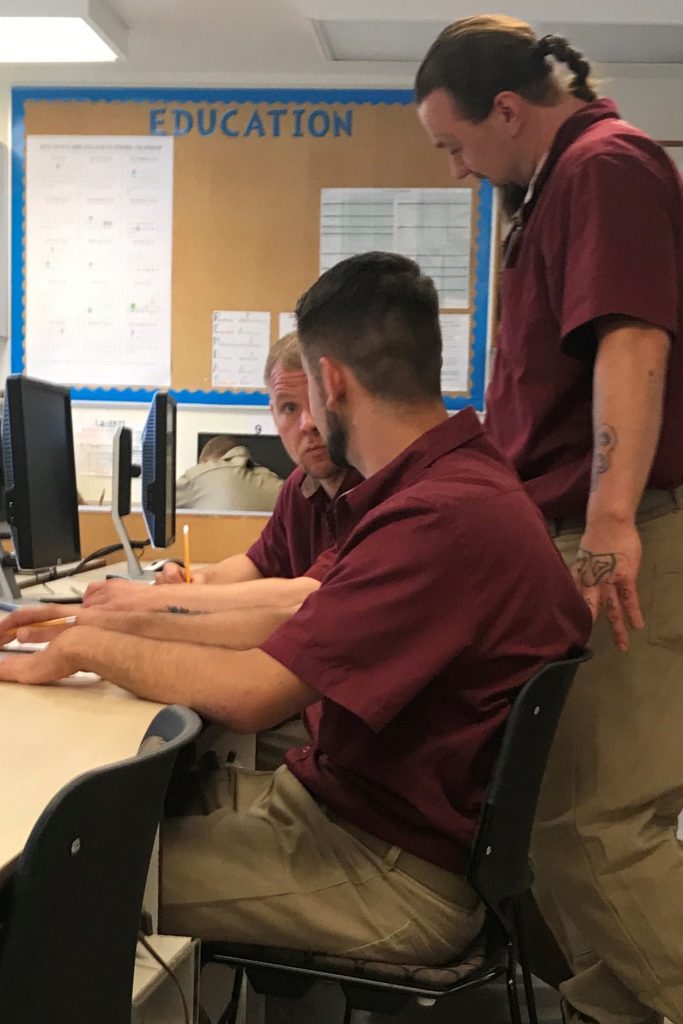Unlocking education for the incarcerated

A surge in COVID-19 cases paused Clark College’s programs at Larch Corrections Center in early January. The minimum-security prison had its first positive COVID-19 test in late December. Only a week later, 218 of those incarcerated —about 70 percent of the prison’s residency—had tested positive for COVID.
An immediate shutdown meant Clark College programs came to a halt. The classroom building was closed. All face-to-face classes were canceled.
“With COVID restrictions, everybody in the education field propelled forward into new methods with online learning, but corrections education took a few steps backward,” said Hanan Al-Zubaidy, Clark’s Director of Education at Larch Corrections.
For security reasons, Larch residents do not have access to the internet, so online education is not an option.
Al-Zubaidy said, “With our classroom closed, we had to figure out a new way.”
As it turned out, the new way was an old way.
Making a game plan
“We came up with a game plan for getting coursework materials to students until they can return to the classroom,” Al-Zubaidy said.
She and Clark instructors —Justin Allen, Lauren Zavrel, Steven Smith and Ron Powers—stepped up to provide educational care packages to those who are enrolled in Clark programs at Larch. They filled backpacks with textbooks, packets of assignments and reading materials, paper, pens and pencils—everything students need to do their work.
They distributed the backpacks with books at the beginning of the quarter. Students work on their Clark projects in their living units and return their completed work in a collection box. Assignments are collected weekly. The assignments are critical to keeping students engaged so they can get back on track once classrooms are open again.
Adapting during COVID

Clark College offers business, GED, and High School Plus (a high school credit-recovery program) courses at Larch Corrections Center. While the classroom facility is closed, students cannot take the GED test, but they can work on recovering high school credits.
Typically, 175 Larch students are enrolled at Clark per quarter, but with COVID social distancing restrictions and rapid releases shortly after the pandemic began, only 68 students are enrolled winter quarter.
Al-Zubaidy, the instructors and staff are working remotely from their homes, but they drive to Larch twice a week to drop off packets of course assignments for students. Located in the remote Cascade foothills in the far east of Clark County, Larch Corrections center is 22 miles—about a 40-minute drive–from Clark College’s main campus.
Sometimes instructors and staff go into the living units to drop off the material. If there are many COVID cases, they dress in PPE or the corrections staff distributes the educational material to students. Due to the number of active COVID cases, when students’ completed papers are picked up, Al-Zubaidy sprays papers with a cleaning solution and leaves them in the classroom for two days before instructors can handle them.
During the COVID lockdown, students who have questions about a particular assignment can message their instructors via an offline messaging system called a kiosk, which Al-Zubaidy described as like a computer, but without internet access. Students also can request tutoring help from a trained tutor if one is living on their floor. (The residents are confined to their own floor.) These paid tutors are also residents at Larch. Some tutors also are Clark students.
Al-Zubaidy said, “We wish we could have a tutor on every single floor, because they are in the units with our students when we can’t be there during COVID.”
She spoke about the Larch students having to adapt to frequent changes in their housing units during the pandemic and dealing with additional stress from not knowing what is expected of them.
“Our students have been very patient. To help reduce their stress, we’ve been flexible with assignment due dates. It’s important we do what we can do to ease some of that frustration.”
Looking toward the future
Al-Zubaidy was the re-entry navigator at Larch before becoming the program director in September. The Clark team at Larch does significant reentry work to prepare students for continuing their education after they are released. They set students up with meetings with colleges across the state. During the lockdown, Al-Zubaidy has been dropping off FAFSA forms and college applications for students.
Because there is no guidebook for running educational programs in a prison during a global pandemic, Al-Zubaidy, the Clark faculty and staff have had to problem-solve each time a new roadblock arises. The deans and directors of all corrections facilities across the state meet weekly via Zoom to share ideas and best practices in corrections education during the pandemic.
Al-Zubaidy said, “It’s helpful to be able to bounce ideas off other directors and ask: ‘What did you do in this situation? What worked for you?’ This group makes me feel supported for all that’s going on.”

This was the first backpack drop for Clark students at Larch Corrections Center, but it won’t be the last. Al-Zubaidy said although it was a lot of work for her team to put together backpacks and folders with student materials and to distribute packets throughout the quarter, it was important to do.
She said, “Students were yelling through their windows asking us if we were finally bringing their assignments. One student saw our basic skills instructor through the window and began asking how he could turn in his homework and if he could get more assignments to work on while in lockdown. Providing our students with material keeps them on track in their programs, gives them something to do to fill their time, and provides a sense of normalcy during these challenging times.”
Al-Zubaidy’s team isn’t done innovating: Clark College is expanding its educational offerings at Larch to include a degree program in Supervisory Management.
Armetta Burney, Interim Dean of WPTE & STEM, said, “I appreciate our faculty and staff’s leadership and the extraordinary commitment they have demonstrated to support our students at Larch. They have come up with creative solutions. They are deeply invested in our students at Larch.”

